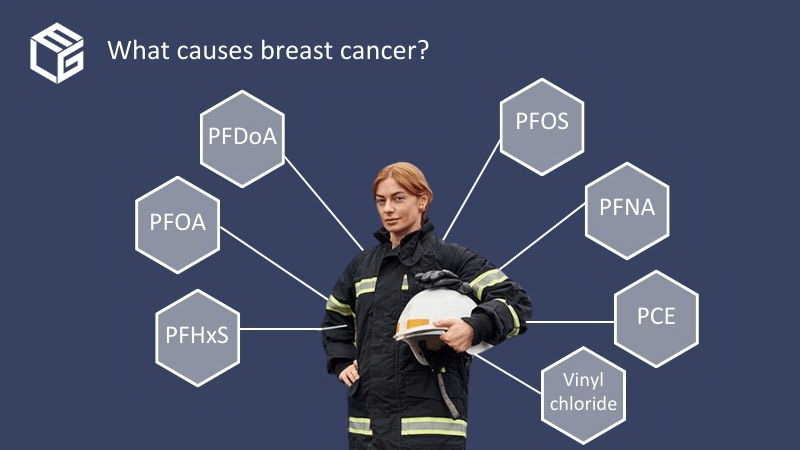Breast cancer claims
processing claims for over 50 years

Every year, 264,000 women and 2,400 men receive a breast cancer diagnosis in the United States. As is the case of most cancers, the exact cause of the disease is unknown, but medical researchers have found many risk factors for breast cancer, including aging, hormone replacement therapy, and obesity. Still, a more obscure contributing factor to breast cancer, both in men and women, is toxic exposure. Some of the chemicals from the PFAS group were found to have a significant association with breast cancer. If you have this diagnosis as a veteran, someone who spent time on military bases, or a firefighter, we strongly encourage you to get in touch with our attorneys, as you might be entitled to compensation.
Our Attorneys